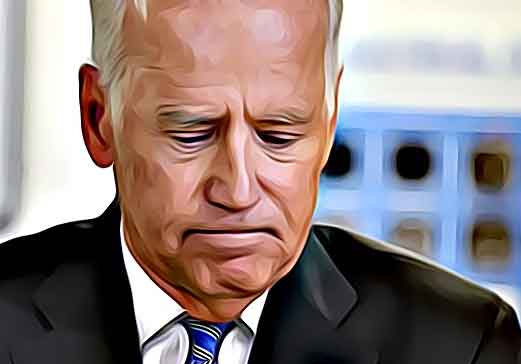
He's also offered the crucial concession that the Federal Reserve must be allowed to lead on both inflation analysis and policy. While some may see this as ducking blame, this dose of humility is an enormous improvement over the way Democrats have discussed the economy in the last year and a half.
In early 2021, Biden offered a heroic two-phase plan in which the administration would first rescue the economy and then transform it. Phase I, the rescue, was premised on timing the passage of a $1.7 trillion stimulus bill with a program of mass vaccination. The idea was for a burst of new spending to hit the economy just as businesses were reopening and workers were returning to the job market.
Phase II, the transformation, was a cornucopia of new spending designed to further entrench the federal government's role in health care, child care, elder care and higher education. It also included a combination of tax credits, mandates, regulations and anti-trade, pro-union provisions ostensibly to address climate change.
Even former Treasury Secretary Larry Summers, who helped design and implement the bailout and stimulus during the presidency of Barack Obama, warned that Phase I was ill advised and Phase II was overly ambitious. Along with other left-of-center economists, he worried that the rescue phase would overheat the U.S. economy, stoke inflation and undercut support for a more modest transformation.
Those warnings turned out to be understated. The omicron variant of Covid scuttled the administration's reopening plans and flooded the economy with cash just as a new wave of closings set in. Inflation rose higher and faster than anyone predicted. Rather than promptly admitting its mistake, however, the administration spent last year insisting that inflation was only transitory and that its initial plan was sound.
This hubris is what lead the U.S. economy into this mess. Thankfully, the administration is now showing the humility necessary to get the U.S. out of it. As Biden now admits, it is the Federal Reserve, not the White House, which should chart the course between inflation and recession.
What neither the administration nor its left-of-center critics seemed to appreciate is that the threat of economic transformation itself would paralyze U.S. industry. The Biden administration promised to overhaul trade, and probably reduce Chinese exports, at a time when West Coast ports were facing overwhelming demand. Naturally, these ports were reluctant to invest more money to handle the record volume when the federal government was promising to reduce it.
Likewise, the administration made it clear it would show little mercy for fossil-fuel companies in its pursuit of a green tomorrow. It canceled the Keystone XL project, for example, just weeks into the president's term, into which a combined $6.8 billion had already been invested. It nominated to the Fed board Sarah Bloom Raskin, who advocated for excluding the fossil-fuel industry from receiving government relief in an economic crisis. No wonder oil companies have been reluctant to increase investment even as the price of oil and gas has soared.
If Biden wants to give the Federal Reserve maximum leeway to steer the economy toward stability, he needs to forsake these policies, along with any other efforts to guide U.S. industry toward some kind of "preferred outcome."
The administration has already outsourced the job of stabilizing the economy. It deserves praise for that. Now it needs to resist the impulse to pick winners and losers in the recovery - and if it doesn't, it will deserve any blame it gets for the recovery stalling out.
(COMMENT, BELOW)
Smith is a former assistant professor of economics at the University of North Carolina's school of government and founder of the blog Modeled Behavior.
Previously:
• 02/17/22: The return of deficit economics
• 02/08/22: States should save their surpluses, not spend them
• 12/30/21: The RINO who would rescue Biden's agenda
• 07/22/21: Hey Biden, Trump could be your best vaccine friend
• 11/14/19: Trump's economy complicates Dems' message
• 11/07/19: Trump, economically, has helped minorities most
• 08/27/19: Corporations can shun shareholders, but not profits
• 06/21/19: Wealth Isn't the Problem
• 03/04/19: Warren is right that it's in the national interest to ease the burden on parents. But here's how to do it
• 01/31/19: What if the 'rich' aren't quite who the Dems think they are?


 Contact The Editor
Contact The Editor
 Articles By This Author
Articles By This Author